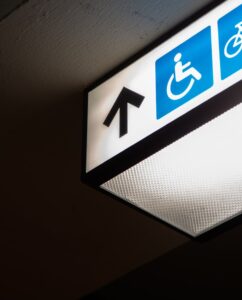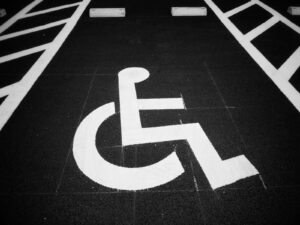The Housing Made for Everyone (HoME) coalition is calling for urgent action to tackle the UK’s accessible housing crisis by raising the mandatory building standards.
The coalition of charities and housing organisations is urging the public to back their proposal for better homes.
The government is now consulting on its long-awaited proposals to raise standards so that all new homes are built to better meet the needs of current and future generations of older and disabled people.
Individuals and organisations can have their say by responding to the consultation before the deadline of December 1. To help people make their voices heard, the coalition has created a simple guide with background information and suggested responses.
It is calling specifically for the government to raise building standards to make the ‘accessible and adaptable’ design standard the mandatory baseline for all new homes (set out in Building Regulations M4 Category 2).
Anna Dixon, chief executive, Centre for Ageing Better said: ‘There is a significant lack of accessible housing in England and every time we delay action the situation only gets worse.
‘The problem is that our homes are currently designed with only the first users in mind, not the dozens of households and individuals who will use it across its lifespan.
‘For too long the government has neglected to act decisively on improving accessible housing but this consultation offers a real opportunity to improve the lives of older and disabled people now and for generations to come.
‘The government must act now to make sure that the homes we build now are fit for the future. Accessible housing will improve the health and wellbeing of millions of people, allowing us to remain independent and in our own homes for longer.’
The coalition believes that everyone, no matter their age, background or ability needs a good home. For most people, that means a home that keeps them safe and healthy and enables them to live the life they want at every age.
However, the UK has the oldest housing stock in Europe. An overwhelming 91% of homes do not provide even the lowest level of accessibility, meaning fewer than one in ten homes are suitable for older or disabled people to visit, never mind live in.
And yet, increasing numbers of people are living into their 70s, 80s, 90s and beyond. In less than 20 years, one in four of people will be over 65. Contrary to common misconceptions more than 90% of older people live in mainstream housing rather than specialist housing or care homes.
Understandably, most people want to stay in their own homes, streets and communities for as long as they can, and their homes should enable more people to do this.
Building accessible and adaptable homes helps people to increase their independence at home, keep them safer, and delay or avoid unwanted moves to more specialist housing, all of which also create enormous social and public savings benefits.
Kerry, a full-time wheelchair user who lives with her husband in a wheelchair accessible Habinteg property in Milton Keynes, said:
‘Before I moved into this property, I was just existing. My independence was limited – I was unable to use my powered wheelchair inside, on antidepressants and becoming more isolated.
‘I count myself fortunate to have found a home that suits my needs, but I know that many thousands of disabled people around the country effectively have their lives on hold waiting for an accessible or more adaptable place to live.
‘I spoke about this when I met with Housing Minister, Rt. Hon Chris Pincher MP earlier this year and it’s really good to see that the Government is now putting forward options on how to increase the number of accessible homes.
‘It’s a chance to make the minimum standard more inclusive and adaptable and make sure that enough homes are fully wheelchair accessible to meet the country’s growing needs.
‘The deadline for the consultation is December 1 and I want everyone who wants to see change join us in responding. This is a really important chance for us to be heard, and if we raise our voices we can help forge a major milestone on the way to a more inclusive and accessible world.’
Photo Credit – Pixabay















Leave a Reply